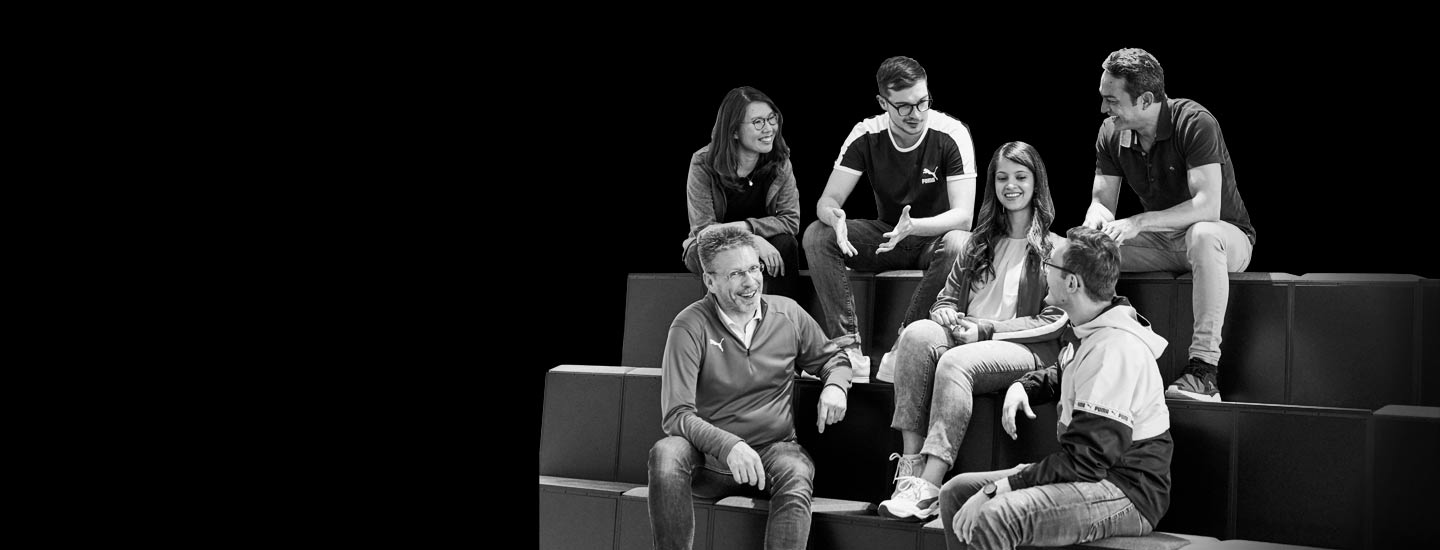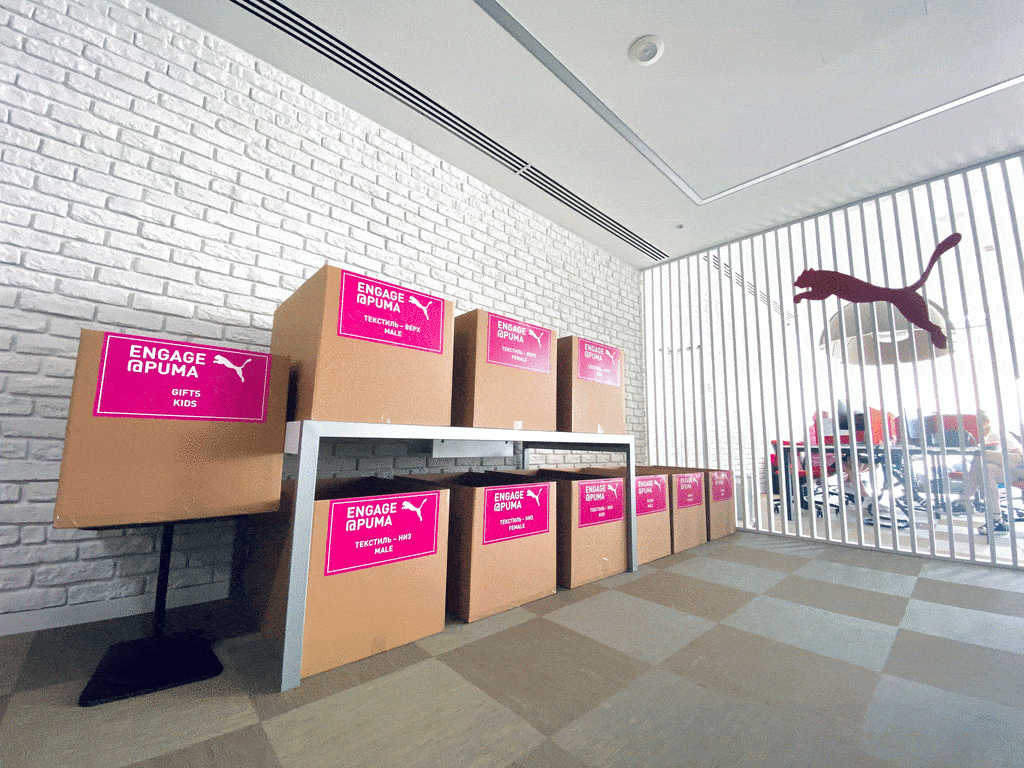
Over the past few years, our main strategic priorities have been to put our employees first, continue our digital transformation, and build an agile learning organization. This foundation supported us as we tackled the main challenges of 2020. During this year marked by the pandemic, our priority more than ever was to keep our PUMA family safe, informed, and engaged.
Our employees are our most important asset. Giving prompt and accurate information about the pandemic and its immediate effects on their day-to-day routine was essential. During the period when most markets were in lockdown and nearly all employees were being asked to work from home, our existing digital infrastructure and our flexible work schedules and mobile working policies helped us to quickly adjust to the new work requirements and even expedited our digital transformation. This enabled us to adapt to the new business requirements and stay connected with our employees while they were working from other locations. During the pandemic, our digital learning platform was leveraged to support our employees in the areas of wellbeing, resilience and mindfulness, and professional development.
All those measures contributed to high employee engagement and helped the PUMA family to master this challenging year; we feel well equipped to continue on our path to greater growth.
In 2020, we greatly accelerated the digitalization of our business processes, making them even simpler and faster around the world. Since 2017, we have been using “Workday” as our main software solution for nearly all HR processes. This gives employees and managers access to all the processes and tools required to carry out everyday personnel management tasks. Managers also have access to user-friendly dashboards that show them information and give them data-driven insights, which are necessary for their planning and personnel management. The analysis of our global data, which is centrally available, gives us a solid basis for strategic decisions and measurable results. Using Microsoft Teams globally, we were well prepared for the challenges that global contact and travel restrictions presented and able to continue working together smoothly.
2020 was also a challenging year for community engagement. Due to local regulations mandating fewer social contacts and social distancing, we often had to change the way we engage with our local communities through projects all around the world and find new ways of engaging. One example of our activities was the “Big Smile” project. PUMA Ukraine donated items to orphanages for the children’s first day of school. PUMA employees in Hong Kong provided laptops to underprivileged children to support their home-schooling activities. In Germany, employees packed food parcels containing special treats such as cookies, chocolate, and specialty coffee to distribute to local food banks, which then handed them out to people in need.

Our goal was to reach a total number of hours spent on community engagement equal to our annual average FTE (full-time equivalent). We encouraged all our employees around the world to participate and record projects and employee engagement on an online platform. In total, initiatives led by our subsidiaries on five continents contributed a total of 19,023 hours (2,376 for PUMA SE) of community engagement. Projects ranged from protecting the environment and promoting health and fitness to fighting discrimination and supporting the education of children in need. Often these projects were carried out in cooperation with local non-profit organizations. Considering that the number of FTEs in 2020 was 13,016 (919 for PUMA SE), we reached our target.
Charity Cat was founded in 2004 by a team of about 20 PUMA employees. Since then, this non-profit organization has grown to include many other PUMA employees and even some external members.
All members are volunteers who donate their free time to different charitable projects, both local and international, supporting long-term collaborations as well as short-term work for good causes.
Charity Cat supported organizations such as "from heart to heart" in the Philippines, which carried out a large rice supply campaign in a Philippine village to support the poorest; the "Bambamarca" health center in Peru for the construction of a hospital; the "Fundación Sonrisas de León" in Colombia, which distributes food and support to further develop poor and structurally weak neighborhoods in Cartagena; as well as the "Fonmeh" orphanage in Haiti and the "Kinder-und Jugendhaus BOLLE" in Berlin.